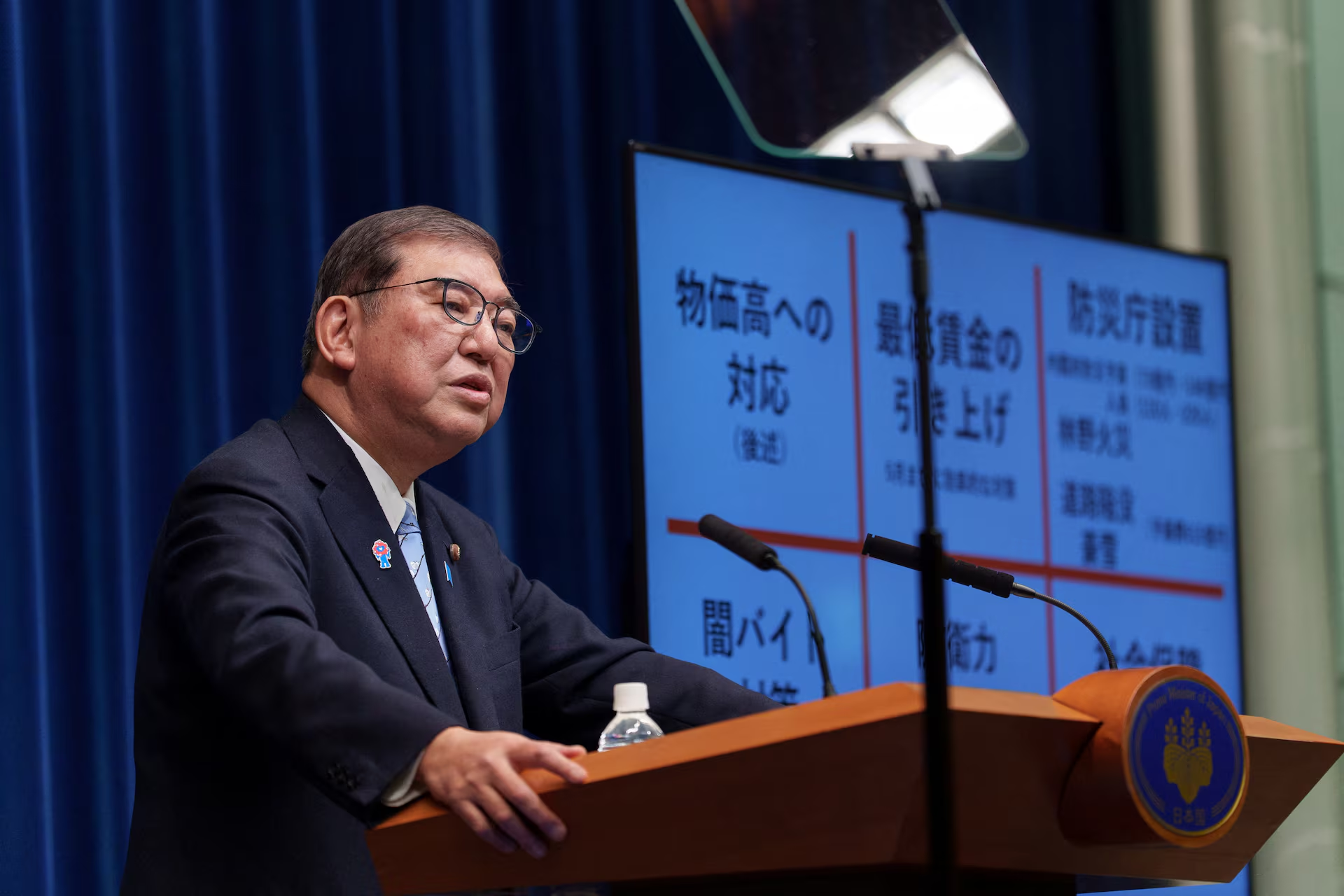TOKYO -- Japan will keep up a strong push for the United States to exempt it from auto tariffs, Prime Minister Shigeru Ishiba said on Tuesday, while vowing to take the necessary steps to cushion the blow to the economy and jobs.
The export-reliant economy could take a severe hit from a planned tariff of 25% on automobile imports unveiled last week by U.S. President Donald Trump, who also promised to announce on Wednesday reciprocal tariffs targeting every nation.
Measures such as offers of funding support to cash-strapped firms are among those the government could take to protect the economy from the higher tariffs, Ishiba told a news conference.
"The government will negotiate with the ruling coalition at an early date specific measures we can take to respond," Ishiba said, in case Japan is slapped with higher levies.
Government agencies are negotiating with U.S. counterparts to secure more details on Washington's tariff plans, he said, adding that he "would not hesitate" to visit the United States again to voice a direct call for exemptions.
Ishiba, grappling with sliding approval ratings ahead of an upper house election expected in July, is also under pressure to counter economic headwinds from U.S. tariffs and protect households from rising living costs.
Japan's headline inflation of 3.7% in February was among the highest in advanced economies, fuelled largely by steady rises in food costs, including those of staple rice.
While big firms have offered bumper pay hikes in this year's wage talks with unions, it is uncertain if smaller peers will follow suit, as Trump's tariff threats cloud the business outlook.
Ishiba said the government would compile measures by May to push up Japan's minimum wage, and a separate package by June to allow smaller firms to smoothly pass on rising costs.
"Achieving wage hikes is at the core of our growth strategy," Ishiba said, stressing the need for pay hikes sufficient to compensate for the rising cost of living.






















































